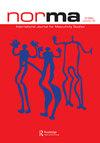South African critical masculinities studies: a scan of past, current and emerging priorities
IF 1.5
Q2 SOCIOLOGY
引用次数: 1
Abstract
Depending on the position from which it is read, and what is regarded as the beginning of the history of the field, South African critical studies on men and masculinities have a relatively estimable though comparatively short history. There exists a significant and steadily expanding body of diverse empirical and theoretical work on boys, men and masculinities which speaks to the particular geoand socio-political spaces. In the main, South African researchers of boys, men and masculinities address themselves to domestic affairs, with some of the work evidencing direct and necessary links to community engagement and activism. There is, however, a vein of scholarship directed towards transnational interests and theoretical issues. It is always difficult to identify key moments – including the beginning – for any body of scholarship work within a particular context. Posed in question form, what was the inaugurating moment of critical studies on men and masculinity (CSMM) in South Africa and what have been the important milestones from which we can learn if we desire to sustain and develop the field? These are interesting points of reflection since there was work on men and masculinities in South Africa in earlier years that was not located in CSMM (e.g. see Campbell, 1992; Lemon, 1995; Meintjies, 1991; Moodie, 1988). But we ought not to minimise the fact that, like other aspects of South African life, and perhaps of all our disrupted and entangled lives under coloniality – knowledge production was almost exclusively produced by white academics, with black people excluded or severely hindered from educational opportunities. Be that as it may, the inauguration of studies on masculinities in South Africa can be dated to 1997, three yers after the advent of consitutional democracy. In July of that year the International Colloquium on Masculinities was held at the then University of Natal (now University of Kwazulu Natal) – a gathering which, arguably, has a claim to be the avowed beginning of CSMM in South Africa. Since then we have borne witness to and been part of a steadily growing turn to boys, men and masculinities (see Morrell, 2020). A notable range of books, journal special editions, and other scholarly work, in general, has since been generated in this particular nation-state which can be used in marking scholarly time (to cite a few of the special editions, volumes and books: Langa, 2020; Mfecane, 2018; Morrell, 2001a; Ouzgane & Morrell, 2005; Ratele, 2016, 2022; Shefer, Ratele, Strebel, Shabalala, & Buikema, 2007; Swartz & Bhana, 2009).南非批判性男性气质研究:回顾过去、现在和正在出现的优先事项
根据阅读它的立场,以及被视为该领域历史的开端,南非关于男性和男子气概的批判性研究有着相对值得称道但相对较短的历史。关于男孩、男性和男子气概的各种实证和理论研究大量且不断扩大,这些研究涉及特定的地理和社会政治空间。总的来说,南非男孩、男性和男子气概的研究人员致力于家庭事务,其中一些工作证明了与社区参与和行动主义的直接和必要联系。然而,有一种针对跨国利益和理论问题的学术脉络。在特定的背景下,很难确定任何学术工作的关键时刻,包括开始。以提问的形式提出,南非男性与男子气概批判性研究(CSMM)的开端是什么?如果我们希望维持和发展这一领域,我们可以从中学习哪些重要里程碑?这些都是有趣的反思点,因为早些年南非有关于男性和男子气概的工作,而这些工作不在CSMM中(例如,见Campbell,1992;Lemon,1995;Meintjies,1991;Moodie,1988)。但我们不应该低估这样一个事实,即就像南非生活的其他方面一样,也许还有我们在殖民统治下所有被打乱和纠缠的生活一样,知识生产几乎完全由白人学者生产,黑人被排斥或严重阻碍了受教育的机会。尽管如此,南非男子气概研究的开始可以追溯到1997年,即宪法民主出现三年后。同年7月,在当时的纳塔尔大学(现在的夸祖鲁-纳塔尔大学)举行了国际男子气概学术讨论会,可以说,这是南非CSMM的开端。从那时起,我们见证了男孩、男人和男子气概的稳步增长(见Morrell,2020)。一般来说,一系列著名的书籍、期刊特刊和其他学术著作,自那以后,它在这个特定的民族国家中产生,可以用来标记学术时间(引用一些特别版本、卷和书籍:Langa,2020;Mfecane,2018;Morrell,2001a;Ouzgane和Morrell(2005);Ratele,20162022;Shefer、Ratele、Strebel、Shaballa和Buikema,2007;Swartz和Bhana,2009)。
本文章由计算机程序翻译,如有差异,请以英文原文为准。
求助全文
约1分钟内获得全文
求助全文
来源期刊

NORMA
Social Sciences-Gender Studies
CiteScore
3.00
自引率
14.30%
发文量
23
期刊介绍:
NORMA is an international journal for high quality research concerning masculinity in its many forms. This is an interdisciplinary journal concerning questions about the body, about social and textual practices, and about men and masculinities in social structures. We aim to advance theory and methods in this field. We hope to present new themes for critical studies of men and masculinities, and develop new approaches to ''intersections'' with race, sexuality, class and coloniality. We are eager to have conversations about the role of men and boys, and the place of masculinities, in achieving gender equality and social equality. The journal was begun in the Nordic region; we now strongly invite scholarly work from all parts of the world, as well as research about transnational relations and spaces. All submitted manuscripts are subject to initial appraisal by the Editors, and, if found suitable for further consideration, to peer review by independent, anonymous expert referees. All peer review is double blind and submission is online via Editorial Manager.
 求助内容:
求助内容: 应助结果提醒方式:
应助结果提醒方式:


